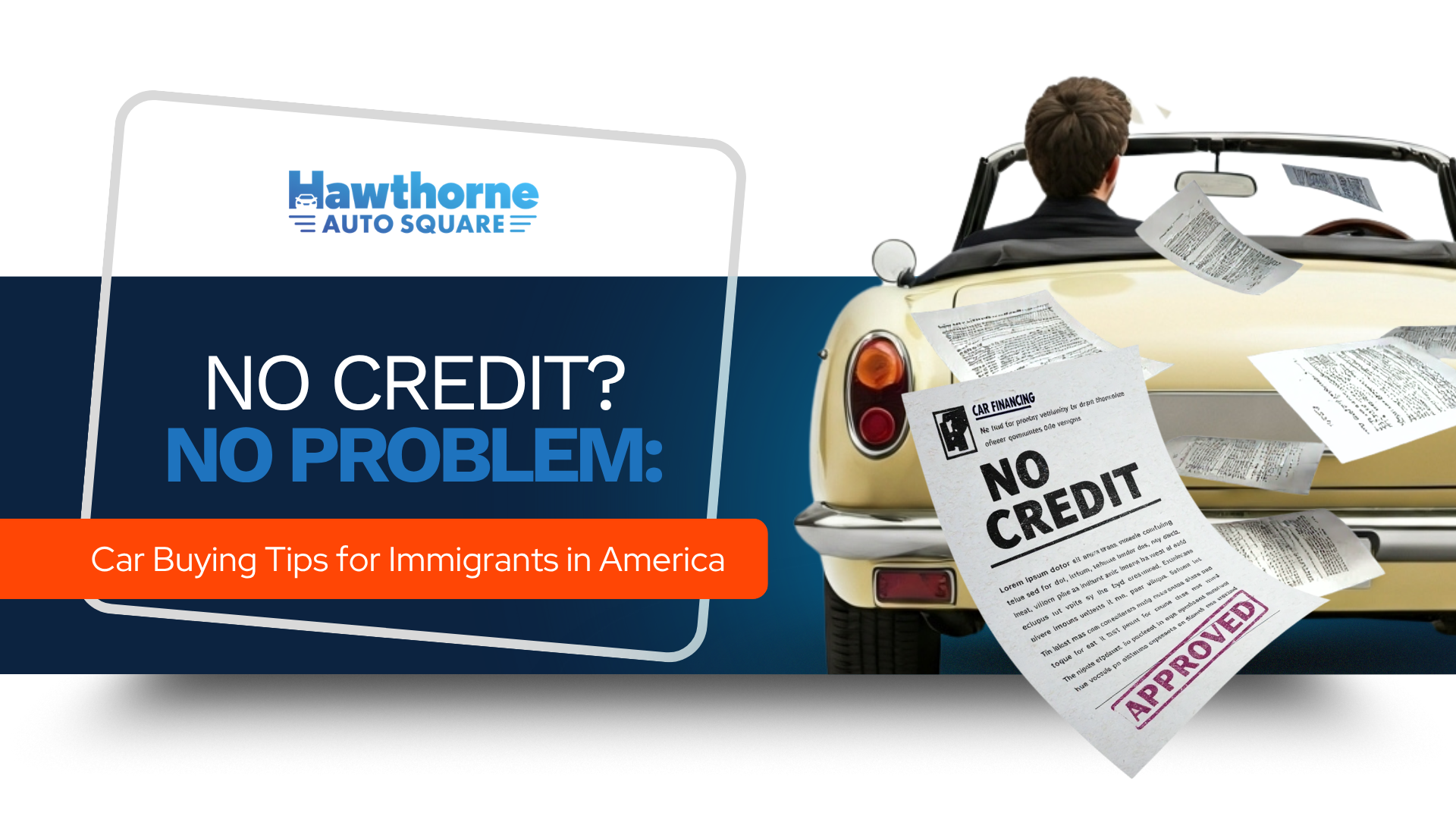
- SALES : (866) 707-7664
- PAYMENTS : (866) 902-7955
- 11646 PRAIRIE AVE, HAWTHORNE, CA 90250
- MON - SAT 8AM - 8PM | SUN 10AM - 6PM
- SALES : (866) 707-7664
- PAYMENTS : (866) 902-7955
- 11646 PRAIRIE AVE, HAWTHORNE, CA 90250
- MON - SAT 8AM - 8PM | SUN 10AM - 6PM
Credit Scores & Car Loans: What You Need to Know (Even with Bad Credit)

The topic of credit scores and car loans doesn’t have to be mysterious. You can still get a car loan and buy a vehicle with poor credit, but there are extra considerations to take into account.
Learn what a credit score is, what’s considered “bad” credit, how much you should put down as a down payment for a car loan, and how financing works.
How Your Credit Score Affects Car Loans
In California, your credit score affects many of your financial options, such as whether you can get a credit card, rent a home, or get insurance. It’s also a determining factor in the interest rate on a loan, as credit scores and interest rates go hand-in-hand.
Your debt, whether you pay bills on time, where you’ve lived, if you’ve been sued, and other life events can affect your credit score. This information creates a thorough record or creditor report and indicates to other lenders whether lending to you is a safe move on their part.
You can check your credit score once every 12 months from each of the three major credit score reporting companies — Equifax, Experian, and TransUnion. According to the California Attorney General, the Annual Credit Report is a safe, authorized source to receive free credit reports.
Can You Get a Car Loan with Bad Credit?
If you’re wondering how your credit score affects car loan approval, it’s simple. You may be offered a subprime auto loan without the lowest interest rate because the lender sees you as a high financial risk. However, bad credit auto financing can still get you a reasonable rate.
Even if you have bad credit, car loan rates vary between lenders. Shopping around may get you a good car with an affordable monthly payment. Pre-approval can help you better understand your options, as you’ll have a dollar amount to work within.
Improving Your Credit Score for a Car Loan

It may take some time, but it’s possible to have good credit again. These steps can help you improve your credit score for a car loan:
- Pay all your bills on time
- Pay down your credit card balance and avoid maxing out credit limits
- Have a few credit accounts (but not too many) and pay them off regularly
- Don’t apply for several new credit accounts at one time
- Avoid taking on new debt if you can’t afford it
- Get on repayment plans if you’re having difficulty paying off loans
- Contact a credit counselor for help if you find the process too overwhelming
Navigating the Car Loan Application Process
The car loan application process is straightforward, even for car loans with bad credit. The following steps will help you prepare and give you the power to find the best possible deal.
Preliminary research
Before car shopping, know what you can afford to pay per month (including insurance costs, car maintenance, and interest rates on top of the loan amount), your credit score, and the different options for your loan, such as:
- Banks
- Credit unions
- Online lenders
- Dealership financing
Go over what each financial institution can offer you, including interest rates and loan terms, before deciding who to choose.
Consider your down payment
Decide how much to put down for a down payment. It’s recommended to put down at least 10% to 20%. You can also trade in your used car at a dealership to add to the total down payment amount.
Gather your documents
The documents you’ll need to apply for a car loan include proof of income (like bank statements), proof of residence (like utility bills), a credit report, your driver’s license, the vehicle’s information, and proof of insurance. If you’re trading in a vehicle, bring the title, registration, and an odometer statement. In California, you also need a smog certificate.
Get pre-approved
Once you’ve chosen a lender, you can request pre-approval to find out how much they’re willing to lend. This helps you set your budget and gives you more negotiation power when you arrive at the dealership.
Special Considerations for Bad Credit Borrowers
Some considerations to take into account when buying a used car with bad credit include:
- Down payment size – If you have bad credit and end up with a high-interest loan, paying a bigger down payment can make your monthly payments more affordable. Trading in your old vehicle can also help you avoid a lot of debt.
- Limited car choices – You may not be able to afford a car with the latest tech. Stay flexible.
- Dealership options – Find a dealership that offers flexible auto loans for bad credit customers and in-house financing. They’ll generally be more relaxed with their credit requirements.
Addressing Specific Bad Credit Situations
The following are the most common bad credit situations creditors look at when deciding whether to offer a loan:
- Poor payment history: Pay all your bills and make minimum payments on time.
- No established credit: The longer your credit history, the better.
- Credit seeking: Don’t seek out more credit in a short period.
- Too much credit use: Avoid using all your credit amounts or going over the limit.
If you can pay a down payment, prove you have a stable income, and have all the required documents ready to go, you’re more likely to get financing for your used car purchase.
Risks and Precautions
Understanding your credit score is important, and so is knowing the risks of getting a car loan with bad credit. Take the following steps to protect yourself:
- Stick to your budget so you don’t get in over your head.
- Check current interest rates before buying to avoid overpaying.
- Avoid salespeople who use high-pressure sales tactics to get you to overspend.
- Avoid adding extra features to your purchase.
- Look at the APR when shopping around to get a better idea of the overall cost of your car purchase, including fees, interest, and additional costs.
Contact Hawthorne Auto Today
Hawthorne Auto Square helps Californians find the right car and the best financing options to suit their needs. Contact us to schedule an appointment, or check out our listings online to see what we have on the lot today. Your financing is guaranteed, no matter your credit history.
Frequently Asked Questions
What’s considered a “bad” credit score when applying for a car loan?
There’s no minimum credit score for a car loan, but a FICO score of 579 or lower is seen as high-risk, and you may be offered a subprime loan due to bad credit.
What are the typical interest rates for people with bad credit?
People with bad credit are generally offered loan rates ranging from around 12% to 21.5% for a used car loan. Shopping around with different lenders may get you a lower interest rate.
Can I get a car loan if I’ve had a car repossessed in the past?
Yes! You can even get a car loan even if you declare bankruptcy. If your car was repossessed in the past, some lenders may see you as high risk and deny your application, but others may offer you a loan at a higher interest rate.
Should I get a co-signer for my car loan if I have bad credit?
Yes. Having a cosigner for your car loan can get you a better deal, as you’ll be better able to make the necessary payments, especially if your cosigner has good credit.
Latest News


Why Should I Buy a Used Toyota Camry?

Bankruptcy and Car Ownership: How BHPH Can Help


Used Car Price Trends for 2025: What Buyers & Sellers Need To Know
Get approved
It only takes a few minutes and won’t affect your credit.
- Pre-Inspected Cars
- Clean Title
- Under Warranty
Latest Videos
What Do I Need To Buy A Car - Hawthorne Auto Square
Second Chance for a New Car - Hawthorne Auto Square
Pre Approved Auto Lone – Hawthorne Auto Square
- SALES : (866) 707-7664
- PAYMENTS : (866) 902-7955
- 11646 PRAIRIE AVE, HAWTHORNE, CA 90250
- MON - SAT 8AM - 8PM | SUN 10AM - 6PM
© 2025 Hawthorne Auto Square. All Rights Reserved. Website Designed by: Ad Leverage | Privacy Policy | Terms of Service | Manage Cookies | DSAR |License #91864
© 2025 Hawthorne Auto Square. All Rights Reserved. Website Designed by:
Ad Leverage | Privacy Policy | Terms of Service
License #91864

